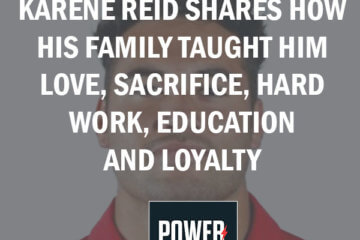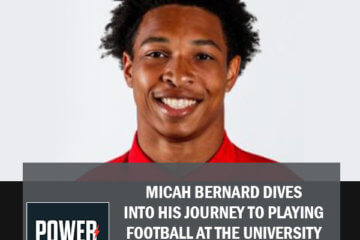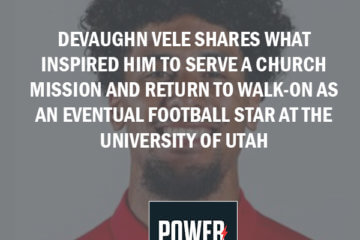Listen to the podcast here
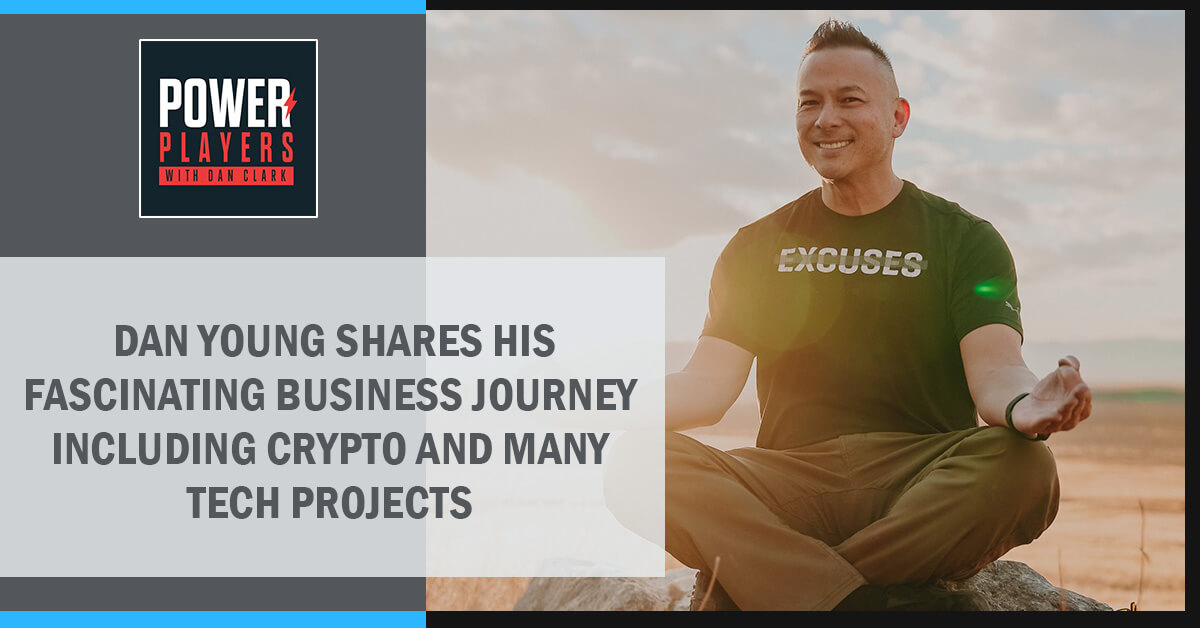
Entrepreneurs would go a long way in their ventures if their top priority is helping other people solve their problems. This has been the center of Dan Young‘s fascinating business journey that allowed him to find success in crypto and tech projects. He shares with Dan Clark how he built the largest Bitcoin mining facility in Utah and earned him over $600 million in deals. Dan also shares valuable advice on finding the right mentor, his previous business ventures, and his incredible love for exotic cars (and how he makes money out of them).
—
Dan Young Shares His Fascinating Business Journey Including Crypto And Many Tech Projects
This is an interview with a serial entrepreneur crypto hedge fund, Founder and CEO of PC Laptop Computers, Dan Young. Thanks so much for spending some time with me. In this episode, my dear friend and mentor hero, Dan Young, entrepreneur, Founder of Ugly Unicorn Crypto Hedge Fund, an Intel Board of Advisors Member, AMD Gaming Advisory Council Member, real estate developer and exotic car collector enthusiast shares his life in the fascinating business journey that includes catching the early vision of cryptocurrency in 2014 and building the largest Bitcoin mining facility in Utah. He’s giving us the inside glimpse into his strategies for closing over $600 million in deals which have included PC Laptops, Xidax.com and many other insane tech projects. You don’t want to miss this.
—
Our episode is with Dan Young. With all the individuals that you’ll ever meet, he has figured out at the youngest age possible how to engage both his left brain, psycho babbling, neuro technical, cognitive side of learning and execution. He perfectly amalgamated with the right brain, the touchy-feely relational side driven by emotion.
When you can understand that it’s possible for every single one of us to learn and engage from an entrepreneur’s perspective, creative, imaginative, passionate perspective and high-level education perspective, figure out a way to take what we know and what we’ve observed and immediately apply it to turn our dreams into reality, Dan Young has the secret sauce and the formula. With no further ado, reading that formal introduction, Dan Young, thanks for joining us. It has been a tough time trying to get you on this program because you are the busiest guy on the planet, which begins with your busy mind.
You’re always looking at things not for what they are but for what they have the potential to become. As you brought us all to tears at a mastermind at this amazing ranch when we met a couple of years ago, I want to take us all back to that story that you shared of how you ended up in America, the immigration story and the beloved relationship you have with your parents and family. Start us from the beginning.
My parents escaped communist China during the World War II era. Before that occupation, they were able to have great businesses and thrive here in America. It’s very similar and they did great. My uncle had a Coca-Cola franchise and my grandfather was an ambassador. Everything was great. Communist occupation and suddenly their home is seized. People are shot in the streets. Anybody with an education who didn’t comply with the communist was thrown into a prison camp. Businesses were seized. It was horrible. They ended up escaping to America and were doing remedial jobs like cleaning floors and things like that.
Where did they end up in America?
Los Angeles, California. My dad and a bunch of his friends again broke, didn’t speak the language and all those things. They all created great business empires from nothing. It was a little bit harder to operate back then. At this point, the world has evolved where anybody can accomplish anything. Yellow, Black, White, Green, there’s so much opportunity.
Back then, it was a little bit different. They spelled our last name Young, my first name, Dan. They didn’t allow us to speak Chinese at home because my dad said, “You have to speak such clear English that no one can decipher where your origin is, except for somewhere in America on the phone.” That’s what they did. I did end up learning to speak a little bit of Chinese but it served us well. It turned out to be a good thing. He started his business. He ended up becoming an Art Director for Mattel. He never met his overseers at Mattel and the executives. He hired a blonde-haired blue eye kid to carry his artwork. I’m bringing it into the office. The whole time they thought my dad, Paul Young, was a blonde-haired White.
What year was this?
It was the ‘50s or ‘60s.
There’s still some prejudice against any minority.
Maybe but he didn’t want to risk it. He was like, “I’ll hire this college kid with blonde hair and blue eyes.” He ended up getting this art award, like best Art Director, Vice President or something for it, however, and they gave him these big academy awards for arts. He came up there to accept the award and they were like, “Are you the assistant?” He was like, “No, I’m Paul.” He designed the whole Barbie Doll campaign, Matchbox Cars and all those things. How I learned entrepreneurship a little bit is seeing him go from zero to that.
Did you have brothers and sisters who also learned it or were you the unicorn in your family?
I was a big entrepreneur but my sister is a business genius. She’s done well. My brother ended up getting stuck into the system. I love my brother. He’s still a slave to his job but everyone has their path. They’ve got Master’s degrees and all that. I’m a dropout but I do have a graduate degree in Business from Stanford that was given to me for donating. My mom was happy with that piece of paper.
I grew up as a teenager and was rowdy myself in California. I became a juvenile delinquent. I went to juvenile hall. I got out and moved to Utah. My sister was working at the University of Utah as an Academic Advisor. Her husband and I didn’t get along. He kicked me out after 30 days. I got to support myself. I went to go learn to sell. I sold cars, did telemarketing and all this crazy stuff. I got a job in the mall at RadioShack. That’s where I met my first mentor.
You can make everything you want in your business by finding out what people’s pain is and trying to solve those problems.
An old guy comes in with a broken hand radio. He was like, “It doesn’t turn on. Can you fix it?” I’m like, “Sure.” I stick a fuse in it. It’s fixed. I even gave him some free red batteries. He’s like, “Do you need a mentor?” I’m like, “What do you do?” He’s like, “I sold my company.” I’m like, “What?” He goes, “Tech. We sold it for over $2 billion and I do nothing except play my hand radio and video games. If you want, once a week, we can meet and I’ll teach you how to make millions of dollars.” We went to the food court. He’s like, “Do you like Chinese food? I go, “I’m Chinese. I love Chinese food.” We ate Chinese food. I executed 3 years and made $1 million.
Here’s the thing. I asked him, “How much cash do you have?” He goes, “$470 million cash. Even though it’s a $2.5 billion deal, I didn’t own all of it. It got diluted the shares.” I go, “I’m not as smart as you.” He goes, “Of course, you’re not. How smart do you think you are?” I go, “Maybe 10% of you.” He goes, “That means you’re going to make $40 million probably the next 10 years or so. You got to do what I say. You can’t argue. You can’t be crap. You got to do it. Don’t ask and not do.” That became true. It was crazy.
Everybody’s ready to take copious notes. They have their yellow pad out. Don’t leave us hanging. What did he teach you?
First things first, he said, “Drop out of school. It’s a waste of your time.”
How old were you?
I was nineteen. I go, “Why? Isn’t school what I need?” He’s like, “Go ask your professors what they make annually. If it’s not what you want because you’re probably going to make maybe what they make annually if you’re lucky working for several years. Listen to the guy who has $500 million and your 10% is going to make $40 million.” I’m like, “True that.” I dropped out. He’s like, “I want you to take all that money you’re wasting on tuition and buy a couple of stocks like Apple and Microsoft.”
What year?
It’s the late ‘90s. I listened to him. Eyes on gold. The gold was 325 per ounce in the year 2000. I bought $20,000 in gold, 325 an ounce. He’s a smart guy and practical. The big thing I learned is to listen to your mentors. Do what your mentors told you to do in the first place. As long as they have three traits and this is something that he had, I believe that I have and I’m trying to have more of it. It is energy. Intelligence is important and integrity. If you got those three things, it is the magic combo.
If you don’t have integrity, the other two don’t work or matter.
I know a lot of guys with lots of energy and intelligence but they’re evil. Sometimes they’re successful for a bit but there are a lot of dead bodies in their wake, business catastrophes or real dead bodies. I don’t think that’s true happiness. You got to be truly someone who’s trying to help.
As a consummate entrepreneur, what were your first entrepreneurial effort and the first business that you started?
The first one was in California. Before I got here, I was selling t-shirts on Venice Beach and sunglasses.
Did you make the t-shirts or did you market somebody else’s?
They were knockoff Ray-Bans and Guess shirts. I sold at the beach because all the girls liked to hang out on the beach. If you get to hang out at the beach all day, have some drinks and burgers and all the girls want to check out your sunglasses, it’s a pretty good deal when you’re sixteen. I did that for the summers. Coming to Utah, the big first entrepreneur was selling at the swap meet on the weekends. I went to this Redwood Road Swap Meet. I set up this little counter and sold Ginsu knives, brass knuckles, pepper gas and nunchucks.
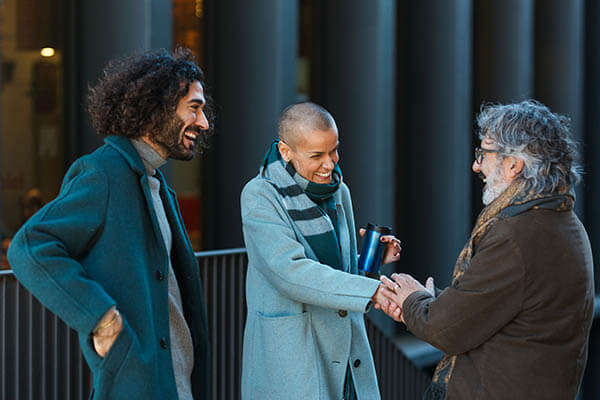
Business Journey: If you can entertain people to like you, they will probably buy from you. That’s why there is value in solving other people’s pain and making them laugh at the same time.
It was $100 to rent the thing and I’d usually make $200 a day so I’d net $100. I asked the old mentor guy, “How do I do this better?” He goes, “You’re Chinese. You know Kung Fu.” I’m like, “I do know Kung Fu pretty good. I took it for years when I was a kid.” He’s like, “Go get a karate gi, Kung Fu outfit, stick it on and do a show.” I put the karate gi and belt on.
I did a show chopping, slicing food, nunchucks and demonstrating punching things. I started making $1,000 to $2,000 a day. I was like, “If you can entertain people and they like you, they’re probably going to buy the stuff if they’re going to buy the stuff anyway, a lot of it because they’re entertained.” That’s how I figured out that solving people’s pains and making them laugh had some value.
What was your secret to finding a mentor? It sounds like this guy found you and was intrigued by your aura and essence.
I fixed his hand radio and didn’t charge him.
You took away his pain. You’ve solved the challenge. How do we go about finding a mentor when everybody who has a phone thinks they’re an expert? We can’t get buffalo anymore by someone who spends and get a gajillion dollars on their website. I’ve been baffled and buffaloed way too many times. How do you cut through the clutter and find an authentic mentor who knows what they’re talking about?
You have to give first. Jeff Flamm, you’re friends with him. He’s been a friend for a few decades. I sat down with him at a charity event or something and he’s like, “Are you supporting this charity?” I’m like, “I don’t have a lot of money but I’m giving my time.” He goes, “I think we’re going to be lifelong friends.” We have a common bond.
You can look on people’s social media and see what they support like saving dogs and cats. Maybe they support the operation-underground railroad or something good. Give your time if you don’t have money. You’ll be in proximity to them. The key is to find out what means something to them. Guys like Jeff and stuff, you could give them a check for $1 million and it’s not even going to make them blink. For most wealthy people, $1 million is nothing. It’s like twelve hours of work. You have to find out what’s dear to their heart and solve their problems.
I found another mentor. I have a few different ones. One of them was like, “My nephew is suicidal. I don’t know what to do. He’s adopted. He’s from Taiwan. Since you’re a Chinese kid too, maybe you can bond with him and help him out. If you can help him, make him nonsuicidal and pursue his dreams, I’ll give you $1 million.”
Who said that to you?
This is my friend Vaughn, who was my neighbor. I sat out with this kid. I met him a few times. I found out what his pains were and we worked through them. The kid did well. He finished school and started a business. He’s doing well. Vaughn was like, “I’ll give you $1 million.” I’m like, “No, I want your knowledge. Will you teach me?” He’s like, “Any day, 24/7.” That’s how I found that mentor. The key is to find out what people’s pains are and this applies to business or anything and genuinely solve those. That’s how you can make all you want.
In my experience, you’re such a phenomenal entrepreneur, a powerful speaker and a business professional but your real reputation on the street is how much you give.
Giving is not selfless.
Altruistic ego. All giving and taking is what we also get from it. That’s okay because when the water of the lake goes up, all the boats rise together. We know that. There’s another idea that popped into my mind. To your point, Dan, when you find someone who has everything in that conundrum, what can you do to say, “Thank you?” Do you agree that the best way to say thank you to someone is to do something for your spouse, your significant other or your children, someone who matters to you? That’s how you have a lifelong customer friend. Find ways to serve their families and their pain point.
Everyone’s got pain. I don’t care how much money someone has. They’ve got pains. We all have pains. It’s different types of pain.
Manifestation is simply convincing your subconscious to take action.
When did you discover your true passion? It seems that you’re fascinated by technology. You’re fascinated by anything that’s on the cutting edge. These are not your words but I’ve tried to describe you to someone else. I said, “If Dan Young was sitting here, you’d say if you’re not living on the edge, you’re taking up way too much space.”
I’m more boring than you think because I like mathematics. I believe that there’s logic and mathematics to most outcomes. When you’re talking to somebody, you ask questions about their problems and needs. It’s either this or that problem. That deducts you to ask another question, this or that. Once you find out enough problems, you know what they need from your questioning and you can offer multiple solutions.
They’re going to pick A, B or C. It’s simple as A, B and C. I don’t believe in manifestation and all that crap. All this manifestation is simply convincing your subconscious to take action. God’s given us all we need in us. He’s given us that. The essence of our creator is in every cell of our body. “It’s the force that binds us,” Yoda says. That gift is there but we don’t use it even though it’s right there.
If we have a mentor that triggers that in us, that’s the benefit of having a mentor, someone who inspires us to take action on what we already know. Teach us about PC Laptops. How did you come into that business? How did you decide that you wanted to be the face and the spokesperson? Did it go back to your entertainment days on Venice Beach that you understood the value of putting a face and a character on a product?
I worked at a different computer distributor called Silo. They’re like Best Buy retail. It’s a great company. I became a leader there, atop Sales Guy Manager dude. My boss told me one day that they were going bankrupt. They were based out of the UK and were pulling out of the US. I asked him, “Can I have the database of all the people who bought computers here?” He’s like, “I don’t care. We’re out of jobs anyway and the company is closing.” I got that database and I cold-called all those people who bought computers and said, “I’ll honor your warranty.” In the first year, I lost a little over $25,000 in red. The next year, we did $1 million in revenue. People are like, “You took care of me. We had pain. Do you sell computers too? You do. Cool, we’ll buy some.” That’s how PC Laptops started.
It’s finding people’s problems. The problem is they felt abandoned. They bought these extended warranties, paid all this money and the company was gone. I’m like, “I’ll honor that if you got your little piece of paper.” Even if they didn’t have it, I’d take care of them. That went a long way. I asked him like, “If you’re happy, can you refer five friends?” People were super happy. It’s the catalyst for doing dumb commercials. If you look at my commercials, I’m dressed like a woman or samurai and weird things. That comes from the experience of selling the Ginsu knives. As I added that into that, that became the marketing approach, this is before YouTube and all that. That became awesome.
You find someone’s pain point, ask all these questions and get this bit of information. You said, “Is the solution A, B or C?” What you taught us is you don’t ask questions that solicit a no. You only gave them options to say yes. You didn’t say, “What can I do for you?” You say, “Could I do this or this? Teach us a little bit more about the art and science of sales from your perspective.
It’s finding people’s pain. It’s not about power closing or pressure. It’s simple as, “Dan, I like about selling you a computer. What do you got?” You’d be like, “What do you like about it?” It’s the same thing with a car, a house or anything. “If you could change something about your previous experience, what are some wishes that you would have if you could go back in time?” They’re like, “I can make it faster. The thing takes ten minutes to turn on. It’s always shutting down. The screen’s too small. I’m getting older so I need a bigger screen.” People will tell you what their needs are.
After that, you’re like a doctor. You write the prescription and go, “This may or may not be for you. You may want to get one or not. Is it cool if I show you what’s available that might help you?” You show them whatever the solution is and then ask them, “What do you think?” They’re like, “It’s great,”or, “It’s too expensive.”
We were selling to a big company called Amazon and a few other big companies. The objection always comes up like, “We can get a computer cheaper.” I’m like, “You can. Let’s do this. Do you have a sample of that?” They’re like, “We have hundreds of them in our office.” I’m like, “Let’s take that. Let’s take our computer. Let us run the software that you’re using to do 3D rendering.” When we did that for one, it took seven hours to do the video thing on the ones they had. They used ours and it took twelve minutes.
I said, “What does your average developer get paid a year?” They like, “$200,000 to $300,000,” or something crazy number. I’m like, “How many developers?” They’re like, “2,000.” I’m like, “If you could take an 11-hour job and bring it down to 12 minutes, how does that mathematically calculate per hour to your dollar savings?” They’re like, “This is the greatest tool in the world.” I’m like, “It costs twice as much as the cheap one but how much more productive? Payroll and marketing are two biggest expenses.” They’re like, “Yes.”
I’m like, “This is going to drop your payroll cost because maybe that team can get twice as much done or you can have half the size team to get twice as much done. Hopefully, you keep the same size team and increase the velocity of your project completion so you can innovate faster because, in tech, time is money.” Sold. They don’t even care. They’re like, “How fast can you get them?” That was a problem.
Let’s take it into your love of exotic cars and how you buy and sell them, I suppose. In your mindset, I’m not putting words in your mouth but you look at everything that is for sale. Everything has a price.
Material possessions are inventory material. People have value beyond any material possession. You can’t put $1 on cars, electronics, art or Pokemon cards.

Business Journey: Finding the right mentor means looking for a common bond. Look them up online to see what they like or if you are in proximity to them.
Where does your love of fast and exotic cars come from? Which cars do you have in your collection? What is your favorite? Start with the love.
In my collection, I’ve got Tesla Plaids, Lamborghini, McLarens, Ferrari, some Porsches and a bunch of sports cars. My favorite car is a Tesla Plaid because it’s like a phone with a steering wheel. It serves me well during COVID to be able to make that my office, do conference calls, Zoom calls with the air conditioner on and do it for five hours. The car is nice and cool. You’re not burning gas. You petty used to run when you’re sitting there.
That’s by far the best car. All the other ones are like an outfit. It’s like wearing high heels or a nice suit. It’s not like you want to do Zoom calls in the nicest suit. You don’t. Those are usually for social media engagement because the younger people get attracted to that stuff again. All of it is inventory and I use cars to make money.
How do you use cars to make money?
There’s a thing called supply and demand. There’s a Lamborghini called an STO. It’s a $360,000 car. The open market is $550,00. For people with money, the recession doesn’t affect them that much. They’re like, “If I want it, I want it.” They’re willing to pay over the sticker price. I get in line for hundreds of cars, take delivery of high-demand vehicles and drive them for as long as the contract says, “I can’t resell it.” It’s between 90 days to 12 months. I sell them to people who want them. Meanwhile, I can drive a free car or have twenty free cars and keep moving them.
Can anyone like myself could do that?
Anybody.
What’s the initial investment?
The deposit on most sports cars like fancy ones is $5,000 to $15,000 down payment. You get it. What I do is I lease it. I did not talk to a CPA but you pay sales tax on the payments. When you sell it, that’s great. You get to keep the profit, you’re good to go and your new one is coming. You keep rotating those. You get ten going at once. You’re making probably $50,000 to $80,000 a car. Roll ten a month. You’re rocking.
Where do I sign up? Do I have to do this on my own? Will you be my mentor?
Not be your mentor but I will give you the information in that. You got to call dealerships around the country. Ask them if you can get one for MSRP. You have to do your research on what’s high demand. You can go to eBay and see what they’re selling for. Call dealerships across the country and ask how much it needs to be down and how long it is going to take. There you go.
Wisdom for the episode.
Make $1 million a year and drive free Lambos and Ferraris. It works. If you go to my Instagram, which is @DansMillionaireCode, make sure there are at least 150,000 plus followers and 2,000 plus posts because there are 100 fake me. They’ll ask you and try scamming. I throw these events called Cars and Coin. Half the guys at my events do what I told them to do. They drive Lambos, McClarens and Ferraris all free.
You’ve evenly invited me once and I was out of town. Will you put me back on your list?
People have value beyond any material possession. You can’t put a dollar on human beings.
You can go. Half those guys are doing it, making money and driving free cars.
What we’re learning from Dan is the ability to roll the dice and calculate risks. Not that he’s a mathematician but a statistical guy. You had the vision way back in 2014 of cryptocurrency. Talked to us about how you were willing to buy into that when it was still not a proven commodity.
I didn’t buy any. I was sitting on $12 million in video cards because I sell computers. A university professor said, “Why don’t you mind these Bitcoin things that you’re sitting on all these video cards, thousands of them? I’ll show you how. Give a good deal on computers.” I hook him all up. We built the largest Bitcoin mining facility in Utah in ‘14 and mine a lot of Bitcoins. We did well. That’s how I got into crypto. In ’17, I sold 75% of those Bitcoins and bought commercial real estate. I kept 25%.
That was before the dip. How did you know that intuitive mathematician statistics analysis?
My wife was like, “If we’re making so much money, you shouldn’t keep it all in this digital crap. You should buy some hard assets.” I ran up by my mentor, Mike, the original and he’s like, “When you’re my age, are you going to want to watch the blockchain all day or do you want to collect rent?” That shows three companies with Mr. Roper. He’s like, “You’re a landlord.” That’s what old guys strive to be. Even myself, when I’m 70, I probably don’t want to be running tech companies. I’m going to be a landlord.
As we went down our time together, I had two questions. I’ve seen you in a room full of young, hungry and thirsty entrepreneurs hanging on every word. You’re like their guru, sage and oracle at the top of the mountain. Not everybody has that opportunity to sit at your feet. I was in awe. You know that. That was the first time I met you.
I want to share with my readers the wisdom that you share in these small intimate mentoring groups. I don’t know anyone you’ve said no to. They say, “Dan Young.” Everywhere I go, “Dan Young was here. Dan Young has participated. Dan Young took my son aside. Dan Young did this.” Teach us what you would drive 5 hours 1 way to say to somebody for free that you think would change our lives for the better.
You got to get very clear. Get a piece of paper out or use your phone for your kids out there and write down your financial, physical and spiritual goals. It would have to be $1 or $1 million physical, “I want to get down to 160 pounds and 12% body fat.” I’m giving you examples. Spiritual goals, “I’d like to pray to my creator every day for five minutes at least and give thanks for the basic things that I have.”
Once you write down your goals, you’re going to write down the actions you need to take to achieve those financial, physical and spiritual goals. You’re going to schedule them on your phone and do them every day. It probably will take you decades to be rich, super extra buff and all those things but you’ll be surprised when you’re consistent.
If you think it’ll take ten years but you’re consistent, look at yourself a couple of years from now and be like, “How did I make $1 million, get down to 12% body fat and feel spiritually enlightened? This is amazing.” You got to level it up. Every time you hit those goals, increase those goals. Pretty soon, you’ll be like, “I made $1 million here. I help this person. That person is so easy.” People are going to tell you you’re smart. It’s not that you’re smart. It’s that you’re executing and spending more time doing what it takes to get the results.
Two more questions. Number one, how do you decide what causes you’re going to support because there are so many and when you have your wealth and your fame, you get hit up every single day, “Support this and that?” How do you sift through it? How do you cut through the clutter and decide? What causes you to want to throw your head in the ring and not just your money? Time is our greatest and most cherished asset. You willingly give of your time, which is never recoverable. When do you decide? How do you decide on what causes?
There are two types of things. There’s the charity. I like operational ground railroad to tell my friends, “Give money in there because you’re saving kids that are being hurt.” I like saving dogs and cats too because I like dogs and cats. That’s my write-them-a-check type of thing. When you give people knowledge, it’s like the old cliche saying, “Teaching a man or a woman to fish is the best thing to do.” I like to teach people because my goal is to trade one million millionaires.
Directly, that’s probably impossible to teach one million people at a time. What I can do is teach groups like you’ve seen and they will teach others. If everybody in their life touched 5 other people who touched 5 other people, as far as transferring knowledge, we could significantly make the world a better place and make people better people by paying that forward. How many people are going to be there? I’d love to teach them. If companies want me to speak, I tell them it’s $25,000 an hour and that includes flight time. Companies pay it. If it’s to help young people or a group of people that will execute and it’s not a corporate gig, I’ll do that pro bono but they have to promise me they’ll execute and teach more people.
Last question. If you had one hour to live, what would you say? Would it be about money or execution? What would it be about? You’re on your deathbed and you get the privilege of broadcasting your message, not just to your closest family members, which means so much to the world. Here’s Dan Young’s last hurrah. What would you say?

Business Journey: If everybody just touches the lives of at least five other people as far as transferring knowledge goes, the world would be a significantly better place.
I’d recognize my family and those people that I love close to me. The big thing is I would teach for that hour as quickly as these concepts as I can because true immortality on this planet, as we know it, not your soul but this man, woman and planet of humans, is knowledge transfer. That’s how we can live for a long time in people’s minds. Look at Jesus. People still talk about him a lot and spread it because he did some good stuff. The same thing with Buddha and all these different people. They had an impactful thing on the world. Their impact was typically intrinsic from the inside out. That’s probably what I would do for that last hour.
Have you written a book yet or may I help?
I’ve attempted. I have 90% of this book written. I hired an agency to do it and COVID started. The agency went bonkers and it’s still 90% done. I can send you the manuscript.
Please do it. If you have any questions about entrepreneurship, I challenge you to reread this episode and take what Dan says seriously. With all the people I’ve been around, what he encourages people that listen to his teachings to do is to execute. Don’t sit there. Don’t be amazed or entertained but take action on what Dan Young has taught us.
As the host of the show, I guarantee that he will help you unleash the power within you. As he said, “You don’t have to think outside the lines or box. The answers are in the box. You have to hang around with the right people who will trigger more passion, creativity, imagination and innovation to take action on what we know and what we’re reminded that we know or the new principles of life and guiding principles that we learn and live by.” Thanks. I appreciate you so much. I want to have you back. You’ve got so much wisdom that we can talk about, probably any subject under the sun.
Let me feed the guys and girls out there to my Instagram. Remember, @DansMillionaireCode. Make sure there are 157,000 plus followers and more than 2,000 posts because daily, I put some crazy stuff out there.
As soon as we jump off here, I’m going on. Thanks, Dan Young.
Important Links
About Dan Young
 Dan Young is an entrepreneur, Ugly Unicorn Crypto hedge fund founder, mentor and real estate developer. He has been on the INC 500 list multiple times as well as being an Intel Board of Advisors member and AMD Gaming Advisory Council member.
Dan Young is an entrepreneur, Ugly Unicorn Crypto hedge fund founder, mentor and real estate developer. He has been on the INC 500 list multiple times as well as being an Intel Board of Advisors member and AMD Gaming Advisory Council member.
He has been involved with Crypto since 2014 and built the largest bitcoin mining facility in Utah. Dan has done over $600 million dollars in deals which have included PC Laptops, XIDAX.COM and many insane tech projects.
